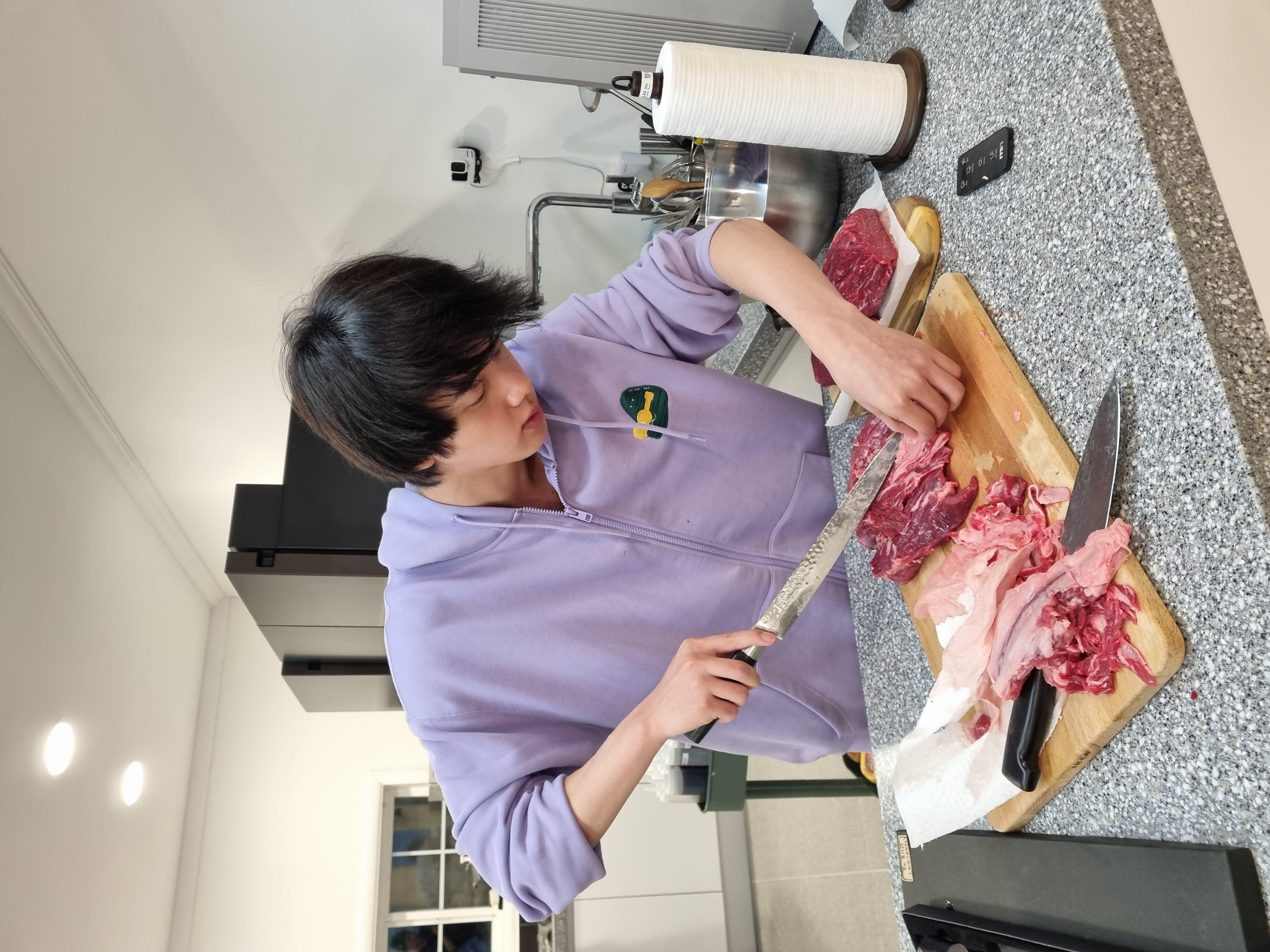Hey there, language enthusiasts! If you're diving into the world of "العربية الفصحى" or Modern Standard Arabic, you're about to uncover a linguistic treasure trove that will blow your mind. Arabic isn't just a language; it's a gateway to a rich cultural tapestry that spans continents and centuries. So, buckle up and get ready to explore the fascinating world of Modern Standard Arabic, because this journey is about to get real interesting, my friend.
Now, let's break it down for you. Why is "العربية الفصحى" such a big deal? Well, it's not just any language. It's the official language of over 20 countries in the Arab world and is spoken by millions of people across the globe. Whether you're planning to travel, work, or simply connect with Arabic-speaking communities, mastering this language can open doors you never knew existed. Trust me, it's worth every effort.
But hold up! Before we dive deep into the nitty-gritty of Modern Standard Arabic, let's take a moment to appreciate its beauty. Arabic is more than just words on a page; it's a language of poetry, history, and tradition. Its script flows like art, and its sounds resonate with a rhythm that's both unique and captivating. So, are you ready to embark on this linguistic adventure? Let's get started!
- Arks Clothing The Ultimate Fashion Destination For Style And Comfort
- Vala Saghafi The Rising Star Of Contemporary Music
Table of Contents
- Introduction to Modern Standard Arabic
- A Brief History of Arabic Language
- Arabic Dialects vs. "العربية الفصحى"
Unpacking the Arabic Alphabet
- Grammar: The Backbone of "العربية الفصحى"
Effective Ways to Learn Modern Standard Arabic
- Top Resources for Arabic Learners
- The Cultural Significance of Arabic
Tips for Mastering "العربية الفصحى"
- The Future of Arabic Language
Introduction to Modern Standard Arabic
Let's kick things off with the basics. "العربية الفصحى," or Modern Standard Arabic, is the standardized version of the Arabic language used in formal contexts such as media, literature, and government. It's the language of the Quran, making it sacred to millions of Muslims worldwide. But here's the kicker—while it's widely used in writing and formal speech, everyday conversations often involve local dialects. So, if you're learning Arabic, you'll need to decide whether you're aiming for MSA or diving into one of the many dialects.
Now, why should you care? Well, mastering "العربية الفصحى" can enhance your career prospects, especially if you're working in international relations, journalism, or education. Plus, it's a language that connects you to a vast and vibrant culture. From the deserts of Saudi Arabia to the bustling streets of Cairo, Arabic is your key to understanding the Arab world.
A Brief History of Arabic Language
Arabic has a storied past that dates back thousands of years. It originated in the Arabian Peninsula and has since evolved into one of the most influential languages in human history. The language we know today as "العربية الفصحى" has its roots in Classical Arabic, which was used during the time of the Prophet Muhammad. Over the centuries, Arabic has absorbed influences from Persian, Turkish, and even English, making it a dynamic and ever-changing language.
- Colleen Basch The Woman Who Changed The Game
- Unlocking The Secrets Of Oslashsup1uacutecopyoslashsup3 Ugravehellipugravedaggeroslashmacrucircoelig Ugravesbquooslashsectoslashbrvbaroslashmacrucircoelig Your Ultimate Guide
One of the coolest things about Arabic is its role in preserving knowledge during the Islamic Golden Age. Scholars translated works from Greek, Roman, and Indian civilizations, ensuring that this knowledge wasn't lost to time. So, when you're learning Arabic, you're not just learning a language—you're connecting with a rich intellectual tradition.
Arabic Dialects vs. "العربية الفصحى"
Here's where things get a little tricky. While "العربية الفصحى" is the formal version of Arabic, there are countless dialects spoken across the Arab world. These dialects can vary significantly from one region to another, sometimes making it hard for speakers from different areas to understand each other. But don't worry—most Arabic speakers can switch between their local dialect and MSA depending on the context.
Some of the most well-known Arabic dialects include Egyptian Arabic, Levantine Arabic, Gulf Arabic, and Maghrebi Arabic. Each has its own unique characteristics, but they all share a common foundation in Classical Arabic. So, if you're learning "العربية الفصحى," you'll have a solid base to explore these fascinating dialects.
Unpacking the Arabic Alphabet
Now, let's talk about the Arabic script. The alphabet consists of 28 letters, and it's written from right to left. At first glance, it might seem intimidating, but with a little practice, you'll be writing like a pro in no time. One of the coolest things about the Arabic script is its cursive nature. Letters often change shape depending on their position in a word, which adds a layer of complexity but also a touch of artistry.
Here's a quick breakdown of the alphabet:
- Alif (ا)
- Ba (ب)
- Ta (ت)
- Tha (ث)
- and so on...
Grammar: The Backbone of "العربية الفصحى"
Grammar is where the real magic happens in Arabic. Unlike English, Arabic has a complex system of verb conjugation, noun declension, and case endings. It might sound daunting, but once you get the hang of it, it's actually pretty logical. For example, verbs in Arabic are conjugated based on tense, gender, and number, which means you'll need to pay close attention to these details.
One of the most fascinating aspects of Arabic grammar is its use of dual forms. In English, we don't have a specific way to express "two" of something, but in Arabic, there's a whole set of rules for talking about pairs. Cool, right? And let's not forget about the rich vocabulary. Arabic has an extensive lexicon, with multiple words for the same concept, depending on the context.
Effective Ways to Learn Modern Standard Arabic
So, how do you actually go about learning "العربية الفصحى"? Well, there are plenty of methods to choose from, and the best approach depends on your learning style. Some people prefer immersive experiences, like traveling to an Arabic-speaking country, while others thrive in structured classroom settings. Here are a few tips to get you started:
- Start with the basics: Learn the alphabet and basic grammar rules.
- Practice consistently: Even 10 minutes a day can make a big difference.
- Engage with native speakers: This will help you improve your pronunciation and conversational skills.
- Use technology: There are tons of apps and online resources designed specifically for Arabic learners.
Top Resources for Arabic Learners
When it comes to learning Arabic, having the right tools can make all the difference. Here are some of the best resources available:
- Books: "Al-Kitaab" and "Mastering Arabic" are excellent textbooks for beginners.
- Apps: Duolingo, Memrise, and Rosetta Stone all offer Arabic courses.
- Online Courses: Websites like Coursera and edX provide structured Arabic programs.
- Podcasts: "Arabic Pod 101" and "Coffee Break Arabic" are great for on-the-go learning.
The Cultural Significance of Arabic
Language and culture are deeply intertwined, and Arabic is no exception. From the poetry of pre-Islamic Arabia to the modern literature of Naguib Mahfouz, Arabic has been a vessel for artistic expression for centuries. It's also the language of some of the world's most beautiful architecture, from the Alhambra in Spain to the mosques of Istanbul.
Understanding Arabic culture can enhance your language learning experience. Whether you're exploring the traditions of Ramadan, the music of Fairuz, or the cuisine of the Middle East, immersing yourself in the culture will give you a deeper appreciation for the language.
Tips for Mastering "العربية الفصحى"
Mastering any language takes time and effort, and Arabic is no exception. Here are a few tips to help you stay motivated and make the most of your learning journey:
- Set realistic goals: Don't try to learn everything at once. Focus on one aspect at a time.
- Stay consistent: Even small amounts of daily practice can lead to big results over time.
- Be patient: Learning a language is a marathon, not a sprint. Celebrate your progress, no matter how small.
- Have fun: Incorporate your interests into your learning. Watch Arabic movies, listen to music, or cook traditional dishes.
The Future of Arabic Language
As the world becomes increasingly interconnected, the importance of Arabic continues to grow. With the rise of digital technology, more and more people are learning Arabic online, and the language is gaining prominence in fields like business, technology, and media. So, whether you're a student, a professional, or just someone who loves languages, now is a great time to dive into "العربية الفصحى."
Looking ahead, the future of Arabic looks bright. With efforts to modernize the language and make it more accessible to learners around the world, there's no doubt that Arabic will continue to play a vital role in shaping global communication. So, why not be part of this exciting journey?
Conclusion
And there you have it, folks! A comprehensive guide to mastering "العربية الفصحى." From its rich history to its vibrant cultural significance, Modern Standard Arabic is a language that deserves your attention. Whether you're learning for personal or professional reasons, the rewards are endless.
So, what are you waiting for? Dive in, embrace the challenge, and let Arabic take you on a journey of discovery. And remember, if you enjoyed this article, don't forget to share it with your friends and leave a comment below. Your feedback means the world to us, and it helps us create even better content for you. Until next time, keep learning, keep exploring, and keep growing! Salaam!



Detail Author:
- Name : Ms. Kelly Crist
- Username : brown.libbie
- Email : tillman.garrett@gmail.com
- Birthdate : 1993-10-20
- Address : 60417 Kelsi Walk Apt. 305 Hermanshire, TN 79172
- Phone : 248-850-0636
- Company : O'Conner, Heidenreich and Romaguera
- Job : Instructional Coordinator
- Bio : Rerum architecto minus et nulla quae. Temporibus quae rerum aut id deserunt nostrum.
Socials
facebook:
- url : https://facebook.com/rabernathy
- username : rabernathy
- bio : Modi architecto architecto cum dolor odio ab.
- followers : 253
- following : 115
linkedin:
- url : https://linkedin.com/in/reinhold_official
- username : reinhold_official
- bio : Non quis blanditiis ut autem.
- followers : 2619
- following : 1890
tiktok:
- url : https://tiktok.com/@reinhold.abernathy
- username : reinhold.abernathy
- bio : Pariatur temporibus sed perspiciatis et ut vitae. Aut assumenda minus eaque.
- followers : 1075
- following : 2419
instagram:
- url : https://instagram.com/reinhold_id
- username : reinhold_id
- bio : Sed esse corporis quos. Iusto voluptatum cupiditate vel accusantium. Est et suscipit quis in qui.
- followers : 1630
- following : 2963